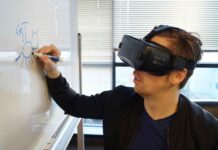CALGARY – Technology is completely changing the world around us. Every day, new advancements are moving humanity into the future. This phenomenon is extremely prevalent in the world of manufacturing. The manufacturing process is the ideal candidate for a technology overhaul. It’s inundated by micro-protocol, which can all be incrementally improved to build a more efficient whole. This is the ideal business owners should strive for with their manufacturing operations. Here’s how technology is changing manufacturing as we know it.
Automation
There has been a lot of discussion about automation in the future of manufacturing. Some people are hailing it as the greatest thing to ever happen to mass production. Others are afraid it will take jobs away from people and give them to robots. The truth is that humans will have the opportunity to fulfill new roles, augmented by advancing technology that can take over some of the more rote processes. In the past, when jobs have become obsolete, new opportunities have quickly presented themselves. For example, humans can help “teach” automated systems through feedback loops.
There are many such ways for humans and automated systems to work together. Humans are still much more adaptable than robots. This means people will quickly be able to fill in where they are needed. Here are a few places where automation will shine in the manufacturing world:
- Repeating tasks will largely be replaced by automated machines. There’s no doubt that a robot can do simple procedures more accurately than a human being. Additionally, machines don’t need to take breaks. They can work all day unless they need to be shut down for maintenance. This will drastically increase efficiency in manufacturing plants that utilize automation.
- Administrative jobs can often be reassigned to automation. This includes certain human resources and accounting tasks. Greater accuracy and efficiency in these areas will be hugely beneficial to manufacturers.
Artificial Intelligence
There’s no doubt that AI will have a drastic impact on manufacturing. Its effects are already showing up in certain manufacturing processes, but it is truly the future of this industry. In fact, AI has the potential to be the single most important technological shift in manufacturing in our lifetimes. This is because AI has potential applications that are incomparable to other kinds of technology. These are some of the ways AI is going to radically redesign the manufacturing world:
- Greater data insights will be available through artificial intelligence. It’s no secret that data is driving a lot of the business growth today. The majority of companies are now investing in their data infrastructure. What does this mean for you and your company? If you refuse to get on the data train, you’re going to get left behind. Hunches and assumptions can’t compare with hard numbers. Companies that do the best job utilizing their data will be bounds ahead of their competition. Artificial intelligence is making this easier than ever. Access to AI-driven analytics is elevating business intelligence for manufacturing. This technology allows users to uncover insights from within mountains of stored data without requiring human analysts to manually sift for them. Business users get instant, accurate data insights about everything from product development to supply chain management that would have been otherwise hidden—cutting down wait time to make actionable decisions. Machine-learning algorithms even use human feedback to refine this process over time.
- Artificial intelligence can also help you create more efficient factory plans. By running AI algorithms, you can get deep insights into inefficiencies that are completely invisible to the human eye. This power will allow manufacturers to greatly reduce expenses in their processes.
Technology is inherent to the manufacturing process. Manufacturing required technology to be created; and its creations all further the advancement of tech. Modern advancements in automation and AI are some of the top drivers for better manufacturing.







